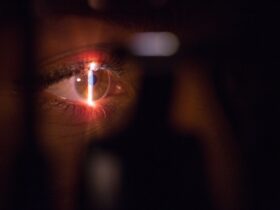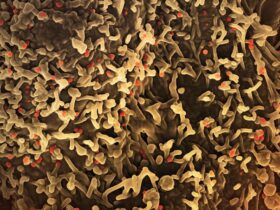Many people have studied stress as either a response, cause, or trigger for other severe human conditions. Work-related stress is every day and is seen as a common risk.
However, some jobs are more stressful than others. Healthcare, for example, is one of the industries where workers are under more stress than other jobs. Why is that?
Nurses are in High Demand
More than three million nurses work in U.S. hospitals now. There is so much demand for health care that even this huge number looks small-scale.
Many people are looking for health care because they are getting older and need more help. A rise in chronic illnesses has also put a lot of strain on the nursing staff, causing more nurses to leave and retire early.
Nurses will also likely be overworked and tired as the number of patients grows because the facilities are understaffed.
Long Hours at Work
Nurses work long shifts and sometimes have to work 12-hour shifts in a row to take care of people.
Many studies have found that working long shifts not only has a harmful effect but also affects their ability to give good care to patients.
A study, which took place in 2010, looked at six countries and thousands of patients. It found that long working hours by healthcare professionals led to a lower level of patient satisfaction.
When nurses work 12-hour shifts, they only make themselves more stressed out.
As they get tired and worn out, they find it hard to keep a work-life balance, make mistakes as they can’t focus, and worry about their personal and professional lives at the same time.
Deprivation of Sleep
It’s almost always the case that more work hours lead to sleep loss and exhaustion – if you often don’t get enough sleep, you may not be as excited to work.
Nurses have to deal with long shifts, but they also have to keep changing their shift times all the time. This causes nurses to get lousy sleep habits.
In a study by Kronos Inc., 25 percent of the nurses who took part said they didn’t get enough sleep between shifts.
Having Poor Communication and a Bad Work Environment
As with any industry, it is unbelievably important to have qualified management personnel and systems in place to keep things moving smoothly. For nurses, that may be hospital administration, a DNP serving as a Chief Nursing Officer, or the doctors they assist.
It might not surprise you to learn that nurses who work in a bad environment are more likely to become stressed out.
It can be hard to focus in a place where there are management problems, toxic leaders, and people who want to rise to the top by any means.
This will affect the quality of care and also make nurses feel stressed out.
High-Stress Jobs
Some nursing specialties have to deal with very stressful situations.
For example, a nurse who works in critical care or emergency care may have to deal with people who have been hurt in fights, people who have died or hurt in ugly accidents.
It can be hard to deal with all the grim and unexpected things that happen daily as a nurse.
Taking a break when you think you can’t handle the stress is the best thing to do. You can go on vacation, do something completely unrelated, and then come back when you’re ready to go back.
A study of oncology nurses found that 30% of them had emotional fatigue, and 35% said they couldn’t do their job well. This is a sign of burnout.
Conclusion
The health care system is built on the health, work-life balance, and mental health of nurses who have made many sacrifices for the sake of the system.
Nurses are the most likely to get burnout, and the main reason nurses don’t practice in their field with the same enthusiasm.
You should figure out what is causing you to be stressed, not to get burned out as often.











Leave a Reply